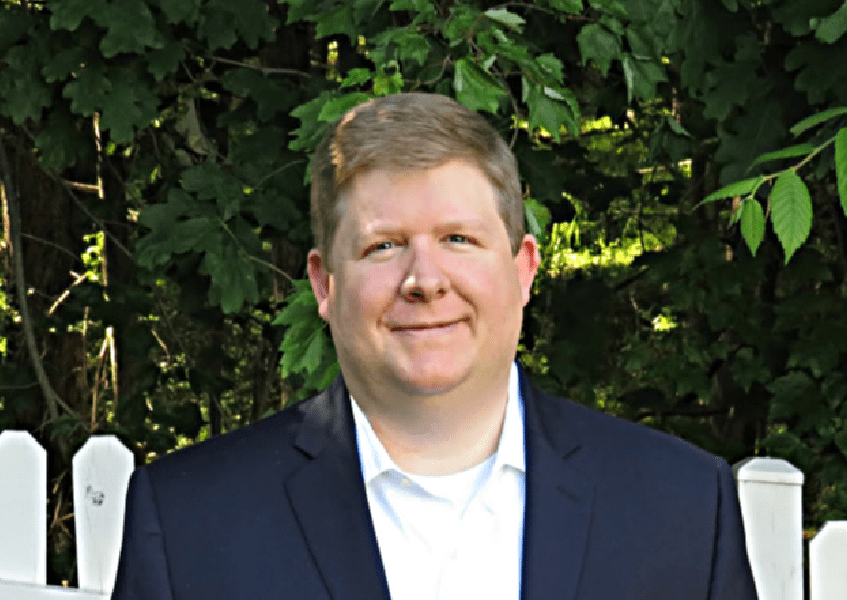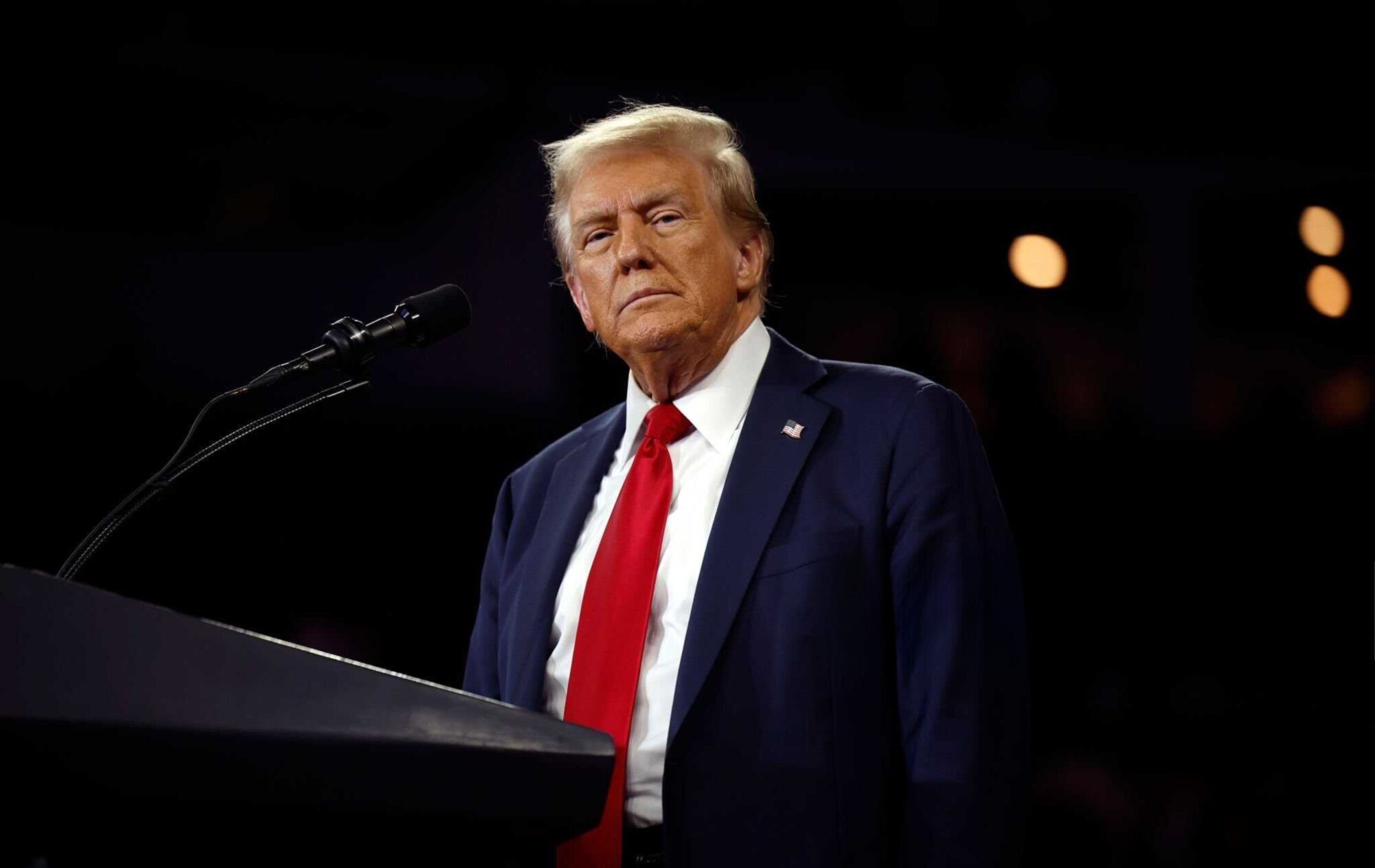
- Defending the heart of conservatism is important, particularly in the midst of a populist moment that threatens to erode the ideals that made America exceptional in the first place.
A couple of decades from now, political scientists will write about the current era as one in which partisan re-alignment occurred. Democrats have, by and large, ceased to be liberal and Republicans have, by and large, ceased to be conservative. Instead, both major political movements in the country have opted for bigger, more controlling government in the midst of an angry populist moment — one where the goal is to impose values “on the other side.”
But populist moments do not last forever. At some point, people begin craving stability. Conservatives should adhere to and advocate for conservative core principles in the face of shifting winds, knowing that those winds will eventually die down.
More than any single policy position, conservatism describes a set of beliefs on the relationship between God and man, man and government, and man and himself.
One of the best and most concise descriptions of these relationships appears in our nation’s founding document, the Declaration of Independence:
We hold these truths to be self-evident, that all men are created equal, that they are endowed by their Creator with certain unalienable Rights, that among these are Life, Liberty and the pursuit of Happiness — That to secure these rights, Governments are instituted among Men, deriving their just powers from the consent of the governed.
There are three clear ideas that emerge. Rights come from God, not government. It’s government’s job to secure these rights, not impose upon or embellish them. Government’s power is derived from the people – people’s freedom is not derived from government power.
From this understanding springs a clear framework for judging policy and politicians. But conservatism is also something more than a philosophical barometer. It is the key to the long-term stability and success of our nation.
An Unfortunate Deviation
Unfortunately, the ideology of conservatism has been bastardized almost beyond recognition – a label affixed to whatever politician or policy the tribe prefers in any given moment, unmoored from any real principle.
In deep red states like Mississippi, there are “conservative” calls for tax increases, “conservative” opposition to tax reduction, “conservative” efforts to expand the welfare state, and “conservative” plays to control the economy and favor entrenched interests. The phrase is frequently used as a “Good Housekeeping Seal of Approval” for faulty products, and has become so ubiquitous as to lose much of its meaning.
In attitude, too often today “conservative” is defined by who is the loudest and most brazen, or by what conservatives are not, as in “at least we’re not those guys.” But loud, angry, and obnoxious does not a conservative make. Neither does a self-identity tied up in “owning the libs.”
Fundamentally, conservatives believe, and thousands of years of human history establish, the greatest catalyst for human thriving is individual freedom. The greatest threat to freedom is the top-down concentration of power. Indeed, almost every large scale atrocity in human history is a byproduct of the gathering of political power to subjugate people – most often vulnerable minorities.
The Relationship Between God and Man
Enlightment philosophers spoke of natural law or natural rights. Thomas Jefferson, who penned the Declaration, said that man was endowed by his Creator with unalienable rights. The notion is that there are knowable rights that all men possess simply by virtue of existing.
The great beauty of this starting point is the presence of moral order, wisdom, and hope that transcends the temporary and fallible nature of man.
John Locke’s formulation included the right to life, liberty, and property. Jefferson’s slight variation was the right to life, liberty, and the pursuit of happiness.
At some level, life is self-explanatory. A belief that a right to life is ordained shines a light on why conservatives are often so energized against abortion. They believe it is the unjustified taking of life.
Liberty, properly understood, is the right to think, speak, and act according to your conscience, so long as your actions do not directly harm another. The closing caveat is often expressed as “my ability to throw a punch ends at your nose.”
Liberty is a rich concept that speaks to both economic and non-economic activity. Included in the concept of liberty is the right to hold and express views that others may find repugnant. This is why conservatives should be leary of restrictions on free expression or laws that impede peaceful assembly and protest.
Recent events on college campuses shine a light on the precarious nature of this right. Conservatives should be careful not to limit the right of pro-Palestinian protesters from expressing their beliefs, while simultaneously drawing and articulating a line at protest efforts that result in limitations on others’ freedoms (such as impeding movement) or actual violence.
Also included in the concept of liberty is the ability to use your knowledge, skill, and effort to provide for yourself by offering goods and services that others want or need. The other side of the economic transaction is the freedom of a person to decide how to spend their own money without government interference.
This is voluntary exchange, or free enterprise, in a nutshell. It results in people who create the most value being rewarded. The potential for reward, or profit, provides motivation for the productivity and innovation that ultimately improves lives. This is why conservatives should be concerned by overregulation of the economy and protectionist rackets that benefit established industries. A rigged economy is not a free economy. It limits opportunity and grows resentment.
The fruit of your labor is your property. Property rights are preeminently important because if your property can be taken, then your labor becomes free. No person should be compelled to work without compensation.
It’s also important because private property ownership lends itself to better use of the property itself. There is a stewardship effect, because someone who earned property understands the labor involved to earn it. This is why conservatives push back on taxes that do not go to fund core government functions. They believe people have a right to the fruits of their labor, and practically, that people spend their money more wisely than government.
The Relationship Between Man and Government
Because conservatives believe that life, liberty, and property are natural rights and the conditions upon which humankind thrives, the preservation of those rights are of first importance. Government, then, has the primary function of protecting those natural rights.
Because conservatives believe that the concentration of power is the biggest threat to natural rights, the same government that exists to protect natural rights must be limited in power.
These beliefs were at the heart of the Declaration of Independence and at the forefront of the debate over the U.S. Constitution. The design of the Constitution was to limit the federal government to a small number of specific responsibilities and then divide its power between three branches.
John Adams, the second president of these United States, described the republican form of government created by the founders as “a nation of laws and not of men.” What Adams was describing was the “rule of law.” The rule of law limits the creation of rules to a public process. It requires simplicity in lawmaking so that normal people can understand what is required of them. It also demands equality in the application of law.
Conservatives believe in the rule of law. They believe no one person is above the law. They oppose arbitrary application of the law.
Historically, these beliefs have placed conservatives in stark contrast to those who want to grow government to impose their will. Process mattered. Limits on power mattered. Without those defining characteristics, “conservatives” and “progressives” become two sides of the same coin–both trying to gain power to “own” the other side.
It bears noting that the rights expressed by both Locke and Jefferson were so-called “negative” rights. A negative right restrains others from depriving a right holder. Respect for a negative right does not come at a cost to anyone else.
“Positive” rights impose a cost on others. As an example, if someone says they have a right to health care, that’s the expression of a positive right since fulfilling it would require the involuntary taking of something–either money or services–from another. Positive rights have the effect of establishing unequal application of law, by treating some people’s rights as subservient to the rights of others.
To a conservative, the point of government is to protect natural rights and preserve the rule of law so that those rights are equally available to all. It is not the point of government to manage our lives or provide for us.
The Relationship Between Man and Himself
That natural rights were “endowed by our Creator” sparks an additional, dutiful aspect to the equation. The natural rights bestowed were not something to be handled haphazardly or hedonistically, but with the care and discernment of someone grateful for the gift of life, liberty, and property.
If government’s primary function is to preserve natural rights and not to order the day-to-day affairs of man, then man must learn to exist on his own and within his community.
This requires personal responsibility. It requires finding a way to earn a living to take care of oneself and one’s family. It requires finding ways to civily engage with neighbors and contribute to the wellbeing of one’s community.
In this way, conservatism is more than a set of philosophical or political beliefs, it includes a behavioral component.
Conservatism also recognizes the great virtue of personal restraint and results in a certain level of decorum that is not prone to rage and emotional outbreaks. It does not resort to a “they did it first” mentality, engage in sophomoric whining, or don the mantle of victim.
Nastiness and petulance are not conservative virtues.
The “Failings” of Conservatism
The obvious (and cheap) retort to any argument that cites our founders or their intellectual predecessors is to point out the great evil that plagued that era–slavery. But that argument is not one that cuts against the principles of our founding.
Instead, it is one that exposes the imperfect application of those principles at the time of our founding, and the hypocrisy of some of our founders.
Slavery did not exist because of the concept of liberty. It was the antithesis of liberty. Slavery was not a byproduct of voluntary exchange of labor. It was the antithesis of voluntary exchange of labor.
In other words, the evil was not the principle. The evil was a result of divergence from the principle. The same could be said of other notable examples of atrocity. From the holocaust to the Russian and Chinese communist parties’ genocide in the 20th Century, over 100 million people lost their lives because natural rights were violated by tyrannical governments.
On the other end of the spectrum, there is a segment of Republicans in the post-Trump world who are equally critical of traditional conservative thought. Again, much of this angst is a result of conservative failure to live up to principle, not the failure of the principle itself.
For decades, Republican politicians promised lower taxes, less government, less regulation, and freer markets. For decades, voters sat back and watched as little of it came to fruition. It’s not surprising then that the lip service paid to these ideas fell out of favor, or that disappointed voters decided that if they could not have more freedom and smaller government, they’d gravitate toward gathering political power for their tribe.
In each of these cases, though, the answer is not to jettison what set our nation apart for most of its history.
The Future of Conservatism
In our lifetimes, there has never been a greater need for the stability of true conservatism. The foundations of the greatest economy in human history have been shaken over the decades. The free enterprise system is being eroded by socialists on one side of the spectrum, and too frequently, by business interests that gain unfair advantage through political relationships on the other side of the spectrum.
Personal responsibility has been replaced by perpetual cycles of victimhood and blame. The building blocks of society–family and community–have been torn asunder. Instead of treating Americans like contributors, we treat them like dependents. Universal truth finds itself out of vogue, replaced by the notion that we can all define our own “truth.” Free speech is no longer free if it counters elitist narratives. Incivility is the order of the day.
All is not lost. America has faced turbulence before and overcome. Stable, strong, and clarion voices can rise to remind us that what made America great was not any one leader, but a set of ideals.
Defending the heart of conservatism is important, particularly in the midst of a populist moment that threatens to erode the ideals that made America exceptional in the first place. Breathing new life into a battle-tested approach can provide the stability desperately needed to overcome uncertainty and set us on a path to continued growth and prosperity.
Reanimating the principles of conservatism can also offer a radical alternative to our current political landscape–where both parties, at times, seem more consumed with gathering power to impose their will on the other, than limiting the power that would allow for this imposition in the first place.










